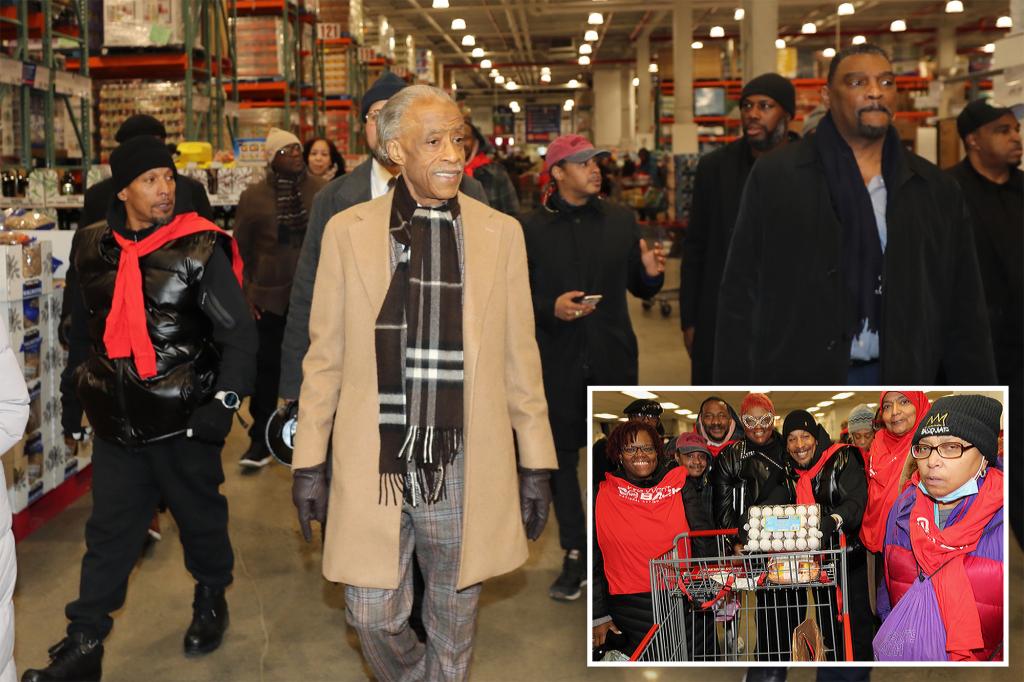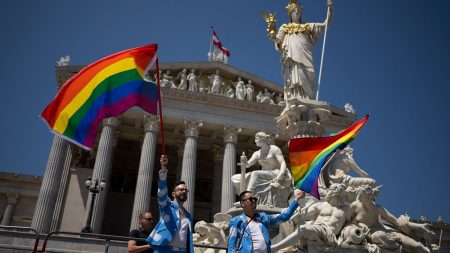Reverend Al Sharpton, a prominent civil rights activist, led a demonstration at a Costco store in East Harlem, New York City, accompanied by approximately 100 supporters. The event, characterized as a “buy-cott,” aimed to express solidarity with Costco’s commitment to diversity, equity, and inclusion (DEI) practices, which have recently come under scrutiny following actions by former President Donald Trump. Sharpton’s organization, the National Action Network (NAN), distributed $25 gift cards to participants, encouraging them to patronize the store and demonstrate their support for businesses that uphold DEI principles. The demonstration underscored a broader debate surrounding the role and impact of DEI initiatives in both the public and private sectors.
The backdrop of the “buy-cott” was President Trump’s executive order targeting DEI programs within the federal government. The order, which placed federal employees involved in DEI initiatives on paid leave and closed dedicated offices, characterized such programs as “illegal discrimination” and advocated for a return to “merit-based opportunity.” This action sparked immediate controversy and drew criticism from civil rights groups and proponents of diversity programs who argued that DEI initiatives are essential for addressing systemic inequalities and fostering inclusive work environments. Sharpton’s demonstration at Costco served as a direct counterpoint to Trump’s order, highlighting the ongoing tension surrounding these issues.
The timing of the demonstration also coincided with a shareholder vote at Costco regarding the company’s DEI practices. A proposal urging Costco to assess the potential risks associated with its DEI initiatives was overwhelmingly rejected, with 98% of shareholders voting against it. This outcome further solidified Costco’s stance on DEI and provided a platform for Sharpton and his supporters to commend the company’s commitment to diversity. The shareholder vote underscored the growing importance of DEI considerations for businesses, reflecting the increasing awareness and prioritization of these issues by investors and stakeholders.
Sharpton’s public remarks during the demonstration emphasized the importance of supporting companies that embrace DEI principles and contrasted them with those that he perceived as disregarding the concerns of marginalized communities. He characterized Trump’s executive order as an “outright affront” to Black and brown communities and reiterated his commitment to championing businesses that prioritize inclusion. The choice of Costco as the venue for the demonstration underscored the symbolic significance of the event, showcasing a major corporation’s public affirmation of DEI in the face of political pressure.
The demonstration attracted a diverse group of supporters, including individuals personally impacted by issues of racial justice. Korey Wise, one of the “Central Park Five” who was wrongfully convicted of a crime he did not commit, was among those present at the event. His attendance highlighted the intersection of DEI issues with broader concerns about racial bias and the criminal justice system, adding another layer of complexity to the debate surrounding these issues. The presence of individuals like Wise underscored the personal stakes involved in the fight for diversity and inclusion.
The National Action Network, spearheaded by Sharpton, announced its intention to compile a list of companies that have abandoned or scaled back their DEI programs. This initiative reflects a broader strategy to leverage consumer power to influence corporate behavior and promote accountability on DEI matters. By encouraging boycotts of companies perceived as unsupportive of diversity, NAN aims to create economic incentives for businesses to prioritize inclusion and ensure that their practices align with the values of equality and fairness. This approach reflects the increasing recognition of consumer activism as a powerful tool for driving social change.










